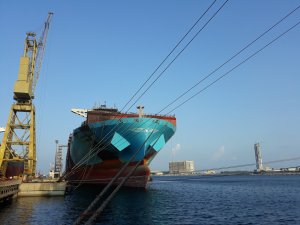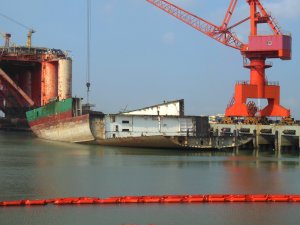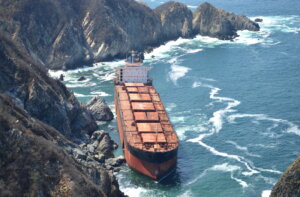Why is marine waste management important?
Ships generate various types of waste during and at the end of their operational life, ranging from operational waste like fuel residues and sewage to hazardous materials such as asbestos and heavy metals. Improper disposal of this waste can lead to severe environmental consequences, including marine pollution and harm to aquatic ecosystems. Bear in mind: your company’s reputation and hefty fines for non-compliance are no small matter either.
Key regulations for ship waste disposal
The International Convention for the Prevention of Pollution from Ships (MARPOL 73/78) is the primary international framework governing waste disposal during the operational life of a ship. It outlines strict guidelines for managing various types of ship-generated waste, setting out specific requirements for waste segregation, storage, and disposal, to ensure that ships operate in an environmentally responsible manner.
For end-of-life ships, the Basel Convention on the Control of Transboundary Movements of Hazardous Wastes and Their Disposal plays a critical role. It mandates that hazardous waste is managed and disposed of safely, especially when transferred across international borders.
Hong Kong Convention (HKC) and EU Ship Recycling Regulation (EU SRR)
The Hong Kong International Convention for the Safe and Environmentally Sound Recycling of Ships will enter into force in June 2025, and the EU Ship Recycling Regulation already applies to EU-flagged ships and to ships calling at EU-ports. Both regulations require the preparation of an Inventory of Hazardous Materials (IHM). This inventory must specify all hazardous materials onboard, ensuring they are handled appropriately during recycling or disposal.
The role of Sea2Cradle
Effective ship waste disposal requires expertise, planning, and compliance with complex regulations. As Sea2Cradle we offer tailored waste management solutions, guiding ship owners through the entire process. Our services include:
- Waste inventory preparation: Identifying and cataloging all waste materials onboard.
- Segregation and disposal: Ensuring waste is sorted, stored, and disposed of in an environmentally sound manner.
- Hazardous waste handling: Managing dangerous substances like asbestos, PCBs, and heavy metals safely.
- Global compliance: Navigating international and local regulations to ensure seamless operations.
Our expertise not only ensures environmental protection but is also cost-effective and 100% compliant.
Best practices for shipowners
To ensure proper ship waste disposal, shipowners and operators should adopt the following practices:
- Implement waste management plans: Develop a ship-specific plan covering waste generation, segregation, storage, and disposal.
- Train crew members: Educate the crew about waste management protocols and the importance of compliance.
- Conduct regular audits: Periodically review waste management practices to identify areas for improvement.
- Partner with specialists: Collaborate with experts like Sea2Cradle to ensure seamless compliance.


